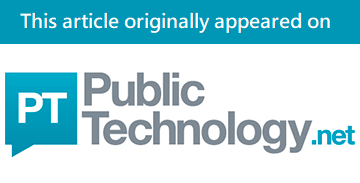As government introduced new data laws to parliament in October, it set out the hope that new legislation will “boost the UK economy by £10bn” as well as “make people’s live easier” and “improve public services”.
To achieve this final aim, the government has proposed a range of new measures – including additional frameworks in some areas, while others will see their current requirements loosened.
Below we set out some key impacts which the new law could have on central government and the services it provides.
This is an edited version of an article which first appeared on CSW’s sister publication Public Technology. To read the full article including impact on the wider public sector, click here.

Registration reform
The government claims that the data legislation will “pave the way towards modernising the registration of deaths in England and Wales from a paper-based system to an electronic birth and death register”.
In doing so, the law will seemingly empower the Home Office to press on with a major digital reform programme intended to deliver digital services to support the 1.5 million births, stillbirths, adoptions, deaths, marriages, and civil partnerships that government is required to formally register each year.
The department’s Civil Registration Service Transformation Programme got underway this year – but did so without the necessary legal framework needed to enable citizens to register major life events remotely. Such legislative provisions were put forward by the previous government, but the bill was not passed into law before the election.
Home Office project documents published over the summer included details of departmental research that found that, with the current requirement for in-person registration, citizens “travel on average 50 miles to register a death”.
But Labour’s bill will allow the registration to be “carried out over the phone”, according to the government.
Rights, research and regulation
The bill is intended to lay the legal foundations for so-called ‘smart data’ schemes, in which an individual or business is given the option to share sensitive information with authorised third parties. Applications for these schemes include open banking platforms, where consumers that have provided their consent can see financial information and make payments from a range of different accounts through one digital service.
Government claims that the laws introduced this week will give ministers at DSIT and HM Treasury “the power to introduce new Smart Data schemes through regulations which will specify the scope of a scheme… including: who is required to provide data; what data they are required to provide; how and when they must provide that data; [and] how that data is secured and protected, including who authorises access to data”.
For individuals, the legislation will mark a progression from the current data-protection legal landscape which “already allows individuals to obtain and reuse their personal data”, according to the bill’s accompanying guidance.
“Smart data takes this further by allowing consumers to request their data be directly shared to authorised and regulated third parties, whilst establishing a supporting framework to ensure data security,” the document adds.
Data held by firms operating online platforms will be subject to a new “researcher data access regime”, in which accredited experts can “conduct robust and independent research into online safety trends”.
Working in concert with the nascent online safety laws, this “move will boost transparency and evidence on the scale of online harms and the measures which are effective in tackling them”.
The Information Commissioner’s Office will remain in place as “the UK’s independent authority responsible for regulating data protection and privacy laws” and, once the bill becomes law, the watchdog will “revamped… with a new structure and powers of enforcement, ensuring people’s personal data will be protected to high standards”.
Details of this overhaul are will be provided in due course – as will the ICO’s full and formal response to the bill.
But, in his initial response, commissioner John Edwards said that “we welcome the introduction of the Data Use and Access Bill in the House of Lords and look forward to seeing it progress through parliament to Royal Assent”.
He added: This is an important piece of legislation which will allow my office to continue to operate as a trusted, fair and independent regulator and provide certainty for all organisations as they innovate and promote the UK economy.”
Sam Trendall is editor of CSW’s sister publication PublicTechnology, where the full version of this article is available.